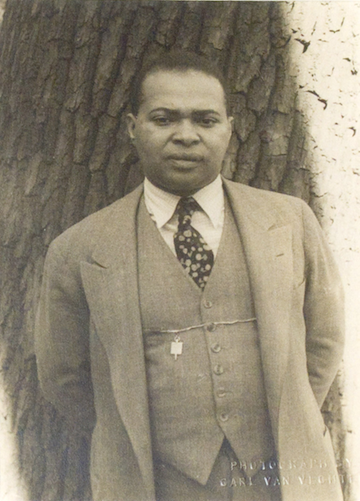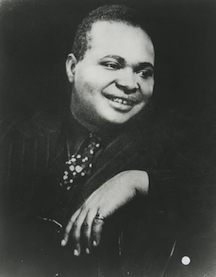By Andrew Huff
In The American Negro: His History and Literature, Countee Cullen earns the distinction of being called the “poet laureate” of the Harlem Renaissance. Cullen graduated Phi Beta Kappa from New York University in 1925, having long romanticized the achievement.
In a 1923 letter to Alain Locke (the first African American to win a Rhodes Scholarship) Cullen wrote: “I had such strong outstanding visions of a Phi Beta Kappa key.” He lyricized the rethinking of race in Harlem as the veritable “New Negro” that Locke had idealized in his anthology of the same name. The Guilder Lehrman Center for the Study of Slavery, Resistance, and Abolition at Yale University notes Locke’s yearning for a forum to “let the Negro speak for himself.”
Countee Cullen responded with a prolific literary career. The aptitude and diligence that earned his ΦBK membership also contributed to his remarkable accomplishments: throughout the 1920s, he garnered more literary prizes than any other back writer.
The Harlem Renaissance occurred between 1918 and 1937 and emerged from the synergy of New York City’s nascent black literary culture and the United States’ quickly expanding post-War publishing industry.
The understanding of race altered within the literary movement. George Hutchinson, in his introduction to The Cambridge Companion to the Harlem Renaisance, describes the transformation of the word “Negro” into “a word of pride, of strong vowels and a capital N” as the very words written, published, and performed in this “Negro Renaissance” testified to this pride.
In Gay Voices of the Harlem Renaissance, African Studies scholar A.B. Christa Schwarz describes an oscillation in Cullen’s use of race. In a 1923 interview with the New York Times he states, “I am actuated by a strong sense of race consciousness… and although I struggle against it, it colors my writing.” Yet, Schwarz notes that as an artist Cullen ultimately prioritized the aesthetic over any particular agenda. In 1924, he fervently stated in the Brooklyn Daily Edge that he wanted to be received as “a POET and not NEGRO POET.”
Indeed, Cullen believed that poets, regardless of racial identity, should only pledge their commitment to “do, write, create what we will, our only concern being that we do it well and with all the power in us’.” Echoes of Phi Beta Kappa resound in his statement.
Cullen’s two-year marriage to Yolande Du Bois, daughter of W. E. B. Du Bois, brought him closer to the movement for racial solidarity. The marriage, in 1928, coincided with Cullen’s becoming the second African American to earn a Guggenheim Fellowship, with which he traveled to Paris.
The Harlem Renaissance found a apt counterpoint in the 1930s Francophone Négritude movement’s own literary critique of racial oppression. Unsurprisingly, then, Cullen wrote one of his most cited poems during his time in Paris: the allegory of “The Black Christ.” At an immediate level, many of Cullen’s poems, such as the acclaimed “Heritage,” express empathy in the struggle for identification with Africa.
The “poet laureate” of the Harlem Renaissance died in 1946, the same year that Karl Shapiro became poet laureate of the United States. In an interview with Paris Review in 1986, Shapiro succinctly captured the deeper sentiment gleaned from Cullen’s work: he stated, “the poet is in exile whether he is or is not.” Yet, this dissonance enables a renegotiation of identity, through word or deed. Poetry becomes a translation of the self, an attempt at a literary rebirth–a personal renaissance.

Countee Cullen wearing his Phi Beta Kappa key, Central Park, New York, 1941.
Andrew Huff is a senior at Goucher College majoring in Political Science. Goucher College is home to the Beta of the Maryland Chapter of Phi Beta Kappa.




